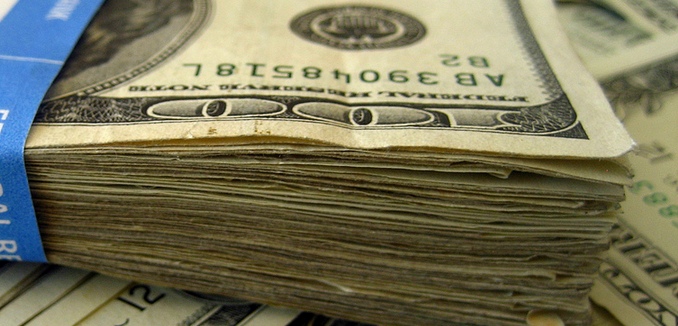Giving Iran access to U.S. dollars in order to boost its international business profile would erode diplomatic leverage against the Islamic Republic and jeopardize the international banking system, experts said in a conference call with the Foreign Policy Initiative last week.
Mark Dubowitz and Eric Lorber, respectively the executive director and senior advisor of the Foundation for Defense of Democracies, warned that letting Iran access the U.S. dollar without demanding concessions on money laundering, terror financing, or its ballistic missile program would be “giving up something in effect for nothing.”
Lorber, who noted that this access was not required by last year’s nuclear deal, gave an example of where dollarizing is important for Iran:
So say for example you had a Swiss automobile manufacturer selling cars to Iran, and their European bank would receive payments from an Iranian company in rials. That European bank would then exchange those rials with euros, and then at the offshore dollar clearing facility would exchange those euros for dollars. So that’s where the dollar hit happens. The bank would then change those dollars internally into Swiss francs and transmit those francs to the Swiss automobile manufacturer. And so this conversion would allow the bank to conduct at least part of the exchange in dollars, which is preferable because the dollar is a stable currency with less fluctuation and risk.
Dubowitz explained that sanctions to prevent Iran from accessing the American banking system were enacted prior to any measures involving Iran’s nuclear program. Rather, these “sanctions were being put in place because the Iranian financial sector represented a threat to the integrity of the global financial system,” he added.
And that threat is on the basis of its proliferation financing, nuclear financing, missile financing, but also terror financing, money laundering, and sanctions evasion. And the administration’s put in place laws and findings that very much reflected what international bodies like the Financial Action Task Force [FATF], this sort of “financial U.N.,” which is an intergovernmental agency that regulates markets and protects financial integrity, had been issuing warnings on for years. And that is Iran, again, represents a severe illicit financial threat.
For nearly ten years, the international financial community has considered Iran “a financial pariah, considered to be financially radioactive,” Dubowitz said. Even if the nuclear deal limited Iran’s behavior in that sphere, the country still engages in other threatening activities.
Large sectors of Iran’s economy are dominated by its Islamic Revolutionary Guard Corps, which is designated under U.S. law and backs the regime of Bashar al-Assad in Syria, Houthi rebels in Yemen, and Shiite militias in Iraq. Iran also still engages in hostage-taking, ballistic missile development, and terror financing. Financial institutions are aware of these ties and are therefore hesitant to get involved with Iran for fear of possible U.S. penalties.
To counteract this, Iran is seeking to become a member in good standing of the international financial community. The means of achieving that respectability, Dubowitz explained, is to get a general license from the U.S. to conduct business in dollars. If the U.S. would grant Iran the license, Iran would be able to go to the Financial Action Task Force and demand a better rating from the body.
Getting the license would allow Iran not just to erode the coercive effects of American financial sanctions, but also to “legitimize themselves as a quote-unquote “responsible” financial actor,” Dubowitz explained. In other words, an American license to carry on transactions in dollars would allow Iran to escape the consequences of its behavior without “actually [demonstrating] that they’ve turned the corner on the money laundering, and the threat finance, and financing of terror concerns,” he said.
Dubowitz observed that Iran’s current efforts in the financial sector mirror its strategy in the realm of nuclear proliferation, where “they can engage in a whole host of malign activities on the non-nuclear side, but their nuclear program will increasingly expand, and will be afforded the international legitimacy that they believe they need in order to get to the next stage of their nuclear ambitions.”
In addition to legitimizing past bad behavior by Iran that affected financial markets, Lorber emphasized the dangers of letting Iran construe the license as being a fulfillment of U.S. obligations under the nuclear deal. If Iran engaged in missile tests in the future and the U.S. attempted to withdraw the license in response, Lorber said, Iran could argue that the U.S. violated the nuclear deal and threaten to stop its compliance.
[Photo: 401(k) 2012 / Flickr ]




